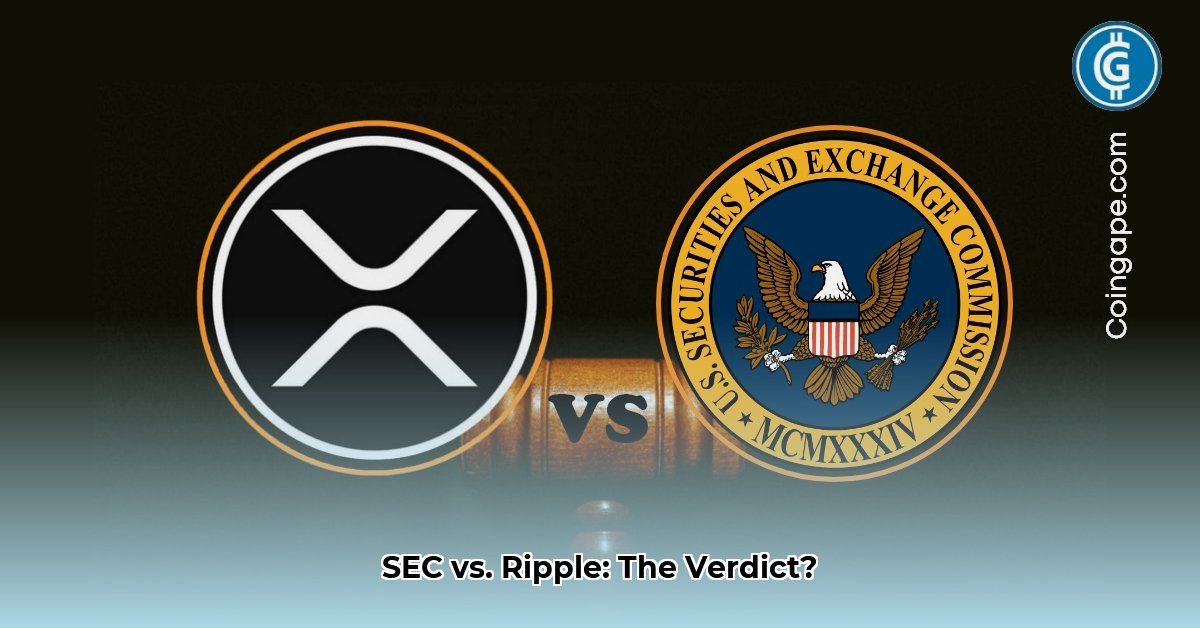
Understanding the Core Dispute: Currency or Security?
The legal battle between the Securities and Exchange Commission (SEC) and Ripple Labs, the creator of the cryptocurrency XRP, is a landmark case shaping the future of digital assets. At its heart lies a fundamental question: Is XRP a currency, used for transactions like the US dollar, or a security, akin to a stock, subject to SEC regulations? This seemingly simple question has profound implications for the entire cryptocurrency industry.
The SEC argues XRP is an unregistered security, alleging Ripple sold it as an investment contract, violating federal securities laws. Their argument rests heavily on the Howey Test, a legal standard defining investment contracts. The Howey Test considers whether an investment of money in a common enterprise, with a reasonable expectation of profits derived primarily from the efforts of others, constitutes a security. The SEC claims Ripple's marketing and the expectations of many XRP purchasers meet this criteria.
Conversely, Ripple maintains XRP is a digital currency, emphasizing its use in cross-border payments and its decentralized nature. They argue that most XRP sales occurred on open exchanges, not directly from Ripple, thus negating the "efforts of others" element of the Howey Test. The differing interpretations of the Howey Test form the crux of this legal battle.
The Legal Battle: A Timeline of Key Events
The SEC initiated its lawsuit in late 2020, immediately impacting the cryptocurrency market. The ensuing legal proceedings have been complex and protracted, involving extensive discovery, expert witness testimony, and numerous filings.
A significant turning point arrived with the district court's partial summary judgment. While the court found certain sales of XRP by Ripple constituted unregistered securities offerings, it determined that programmatic sales on public exchanges did not. This mixed ruling left both parties—the SEC and Ripple—with grounds for appeal, highlighting the ongoing uncertainty. The appeals process is currently underway, with the final outcome still undetermined.
Key Arguments and Legal Precedents
The SEC's case rests on its interpretation of XRP sales as investment contracts, focusing on investor expectations and Ripple's alleged promotion of XRP's price appreciation. They cite communications from Ripple, marketing materials and the behavior of XRP purchasers as evidence that XRP purchasers were investing in the promise of profits derived from Ripple's efforts.
Ripple counters by emphasizing XRP's decentralized nature, its use in global transactions, and the absence of a direct promise of profits from Ripple to purchasers. They highlight the volume of transactions conducted on decentralized exchanges as evidence of its function as a currency. This clash of interpretations highlights the challenges of applying traditional securities laws to novel technologies.
Implications for the Crypto Industry and Beyond
The SEC vs. Ripple outcome will significantly impact the cryptocurrency industry. A decisive SEC victory could lead to stricter regulatory oversight, potentially stifling innovation and investment. Conversely, a Ripple victory could create a more relaxed regulatory environment, possibly fostering innovation but potentially increasing investor risk due to increased ambiguity.
The case’s implications extend beyond the US borders. As noted by [Name and Title, Institution], the decision carries international weight and will shape the regulatory responses of other nations. This global impact is significant, considering the decentralized nature of cryptocurrencies and the vast international network of transactions.
Key Takeaways:
- The ruling's impact on other cryptocurrencies remains uncertain, depending on how courts apply the Howey Test to different token models.
- Regulatory clarity is crucial for fostering investor confidence and sustainable growth within the cryptocurrency market.
- The case highlights the need for a comprehensive, internationally coordinated approach to regulating digital assets.
Navigating Future Uncertainty: A Path Forward
The SEC vs. Ripple case underscores the evolving legal landscape surrounding cryptocurrencies. The uncertainty emphasizes the need for both businesses and investors to remain informed and adapt to shifting regulations. Proactive compliance, diversification of investment strategies, and a clear understanding of the evolving legal landscape are paramount. The ongoing legal battle serves as a stark reminder of the need for comprehensive regulatory clarity. The future of the cryptocurrency market rests, in part, on the resolution of this pivotal case.